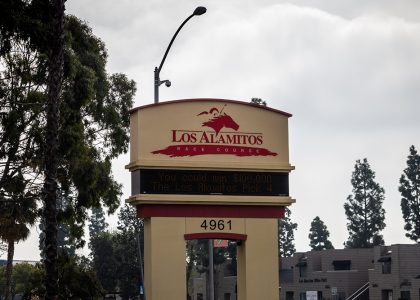What Happens After A Listing Agreement Is Signed?
If you own a piece of commercial real estate in Orange County, there are three things you may want to do with it. Firstly, you may want to run your own business from the property. More commonly, you may want to lease it out, so that you can earn on your investment. Lastly, you may be in a position in which you want to sell the property.
In the latter of the two options, your starting point will be to find a commercial real estate broker or agent, whose responsibility it is to help you find a tenant, or a buyer. Do remember that you have a choice of two types of brokers, which are the leasing agent (who will mainly work on your behalf) and the tenant broker (who will work mainly on behalf of your clients). Your broker is a vital partner in actually finding someone to sell or lease your property to, and who are likely to want you to sign a listing agreement, something that can also be heavily negotiated on.
A “listing agreement” is a contract between a real estate agent (the listing agent) and a seller that says that the agent has the right to list (advertise and handle the sale of) your house. It’s important to understand the terms of the agreement, because you’ll be bound by them. And while a listing agreement is good for the agent, because it obligates you to work with the agent for at least a minimum amount of time, it also protects you, the seller, by explaining the agent’s responsibilities and what you can do if he or she doesn’t meet them.
What Is on a Listing Agreement?
Listing agreements exist regardless of whether you are offering a property for lease or for sale. They also exist whether you want to sell a commercial property, or a residential property. A number of key things are included on these agreements, such as:
- How much commission you have to pay once the sale or lease goes through.
- Whether the agent has an exclusive right or not. If the agent has exclusive right, it means that you cannot work with any other agents.
- How long your listing agreement will stay in place.
- The protection or safety clause, which is in place to stop you from waiting until your agreement has ended before selling or leasing out your property to someone your agent has found for you.
- The duties of your agent, and what he or she is and is not allowed to do on your behalf.
- The representations you have to make in terms of proving that the property is yours to sell or lease.
- What to do in case of a dispute between you and the agent, or a potential client.
Once you have your listing agreement in place, the long wait for an even longer period of negotiation will commence. But what exactly happens once it is signed?
1. Creation of the Marketing Collateral
Your agent should take responsibility for creating a brochure that highlights all the different features of your property. While it is possible that there will be a physical copy of this brochure, it will generally be created in an electronic format. This is because listings now tend to be online, and because your broker will likely send it out through a so-called “broker blast”. Broker blasts are important in the commercial real estate market, although those on the residential real estate market often consider them it as spam. Essentially, it means that the brochure is sent out to anyone who may be interested in the property.
2. Multiple Listing Service
One thing you are likely to notice with the commercial real estate market is that it can be quite hard to find listings. Good brokers will tell you exactly where your property will be listed, and whether there are costs involved with that as well. Some of the most popular listing websites include Xceligent, AIR, The Smith Guide, ILS, CoStar, and Loopnet.
LoopNet has more traffic, listings, and geographic coverage than any other commercial real estate marketplace. 5 million monthly visitors, 800,000 listings available, $425 billion in property for sale, 6.3 billion square feet for lease.
By listing your property on these websites, different agents will be able to see it and link interested parties to it.
3. Signage
The world of signage has changed dramatically. Once upon a time, properties could only be sold if they had a clear sign outside with the details of the broker on it. Today, these signs continue to be important, but people look for digital signage as well. The efforts described above are part of your digital signage, but you agent should also undertake other strategies. One new and increasingly popular option for signage is the use of QR codes.
QR codes are especially ideal for real estate marketing products because they are extremely interactive, and can be used on anything from real estate flyers to email marketing campaigns. They are great because it makes it much easier for clients to visit your real estate website, listing photos and details, plus much more.
4. Advanced Notice
It is likely that, if you have entered the stages of negotiating your listing agreement, your agent will already send out an “advanced notice” to their contacts. This means that they will inform people of a property that is likely to become available soon. Alternatively, if you still have to complete some repairs on your property, or there are other reasons why it cannot go on the market when you have signed your listing agreement just yet, an advance notice can also be sent out. This creates a buzz around your property.
5. The Marketing Process
Last but not least, your agent will start marketing your property in various places. Whenever he or she has an opportunity, the brochure on your property is presented and discussed. The agent should also engage in meetings, speak to clients, and more.
Put together, the above five steps will help you sell or lease out your property as quickly as possible.


